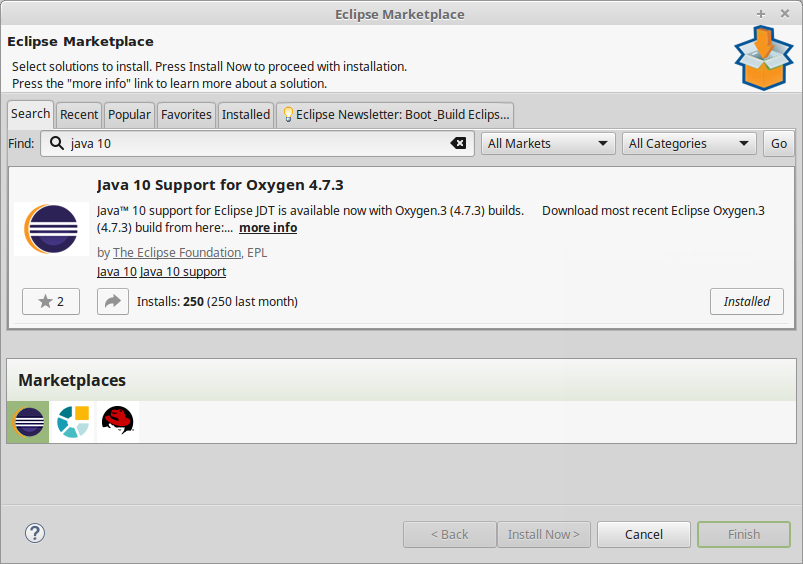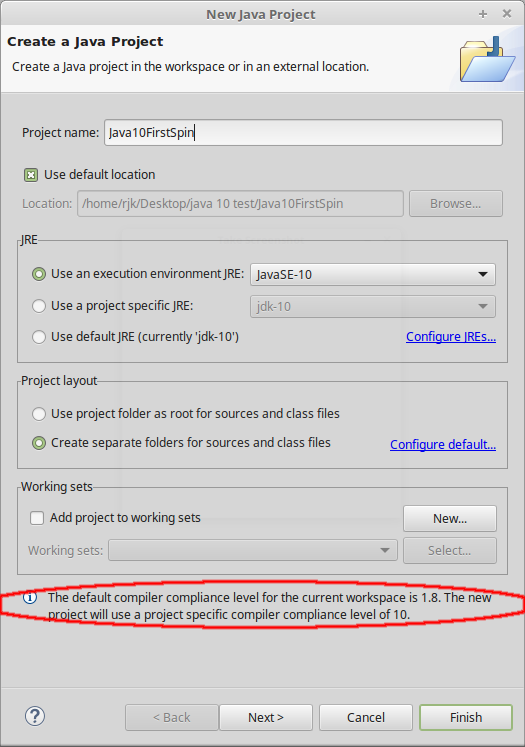If you’re keen to try Java 10 (of course you are!) then you can download the JDK from Oracle at the usual place.
I’m still with Eclipse (for the time being at least), and to use Java 10 (at the time of writing), you need to be on the latest version (currently Oxygen.3 aka 4.7.3) and you need to install (via the Marketplace) a Java 10 plugin.

After installing the plugin, restart Eclipse and then define a JDK (using the usual tortuous Window -> Preferences -> Java -> Installed JREs and navigate to the folder you downloaded the JDK to).If you haven’t installed the plugin, this will fail because eclipse won’t recognise the new structure and layout of the JDK.
Now you can create a new project – I haven’t changed my default compiler compliance level so I’m getting a promising looking message saying the compliance level is going to be changed for this project…

And that’s it. You can now create a class and start using the new features – the next blog post will explore what I think is the best of them, Local Variable Type Inference.
[edit1: I’m far too Eclipse-centric, I do need to address this soon. I can’t see any sign of Java 10 support in NetBeans but JetBrains/IntelliJ as usual are well ahead of the curve, they announced support for Java 10 as far back as last November. ]
[edit2: JetBrains are running a live Java 10 Webinar hosted by Trisha Gee on Thursday, Apr 5 2018, 4:00 PM – 5:00 PM CEST, check it out if you can.]